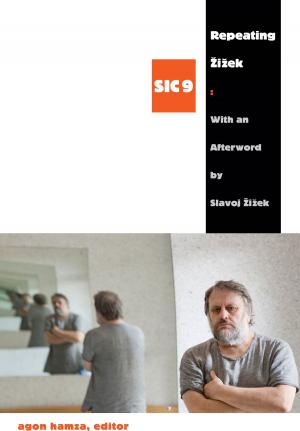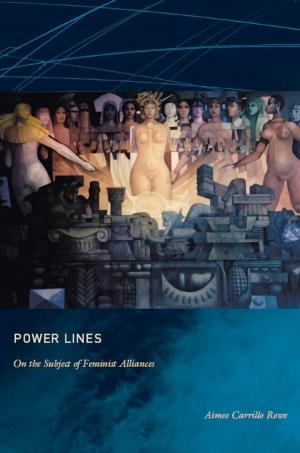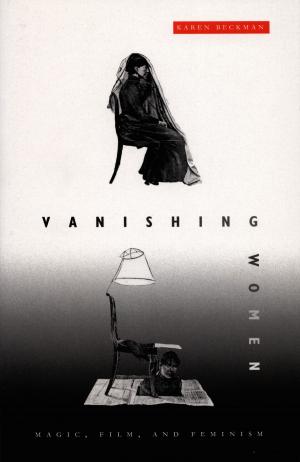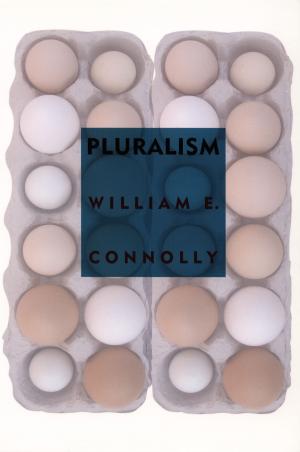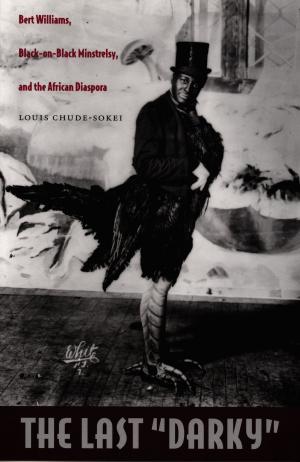Radical Sensations
World Movements, Violence, and Visual Culture
Fiction & Literature, Literary Theory & Criticism, Theory, Nonfiction, Social & Cultural Studies, Social Science, Gender Studies, Women&, History, Americas, United States, 20th Century| Author: | Shelley Streeby | ISBN: | 9780822395546 |
| Publisher: | Duke University Press | Publication: | February 8, 2013 |
| Imprint: | Duke University Press Books | Language: | English |
| Author: | Shelley Streeby |
| ISBN: | 9780822395546 |
| Publisher: | Duke University Press |
| Publication: | February 8, 2013 |
| Imprint: | Duke University Press Books |
| Language: | English |
The significant anarchist, black, and socialist world-movements that emerged in the late nineteenth century and early twentieth adapted discourses of sentiment and sensation and used the era's new forms of visual culture to move people to participate in projects of social, political, and economic transformation. Drawing attention to the vast archive of images and texts created by radicals prior to the 1930s, Shelley Streeby analyzes representations of violence and of abuses of state power in response to the Haymarket police riot, of the trial and execution of the Chicago anarchists, and of the mistreatment and imprisonment of Ricardo and Enrique Flores Magón and other members of the Partido Liberal Mexicano. She considers radicals' reactions to and depictions of U.S. imperialism, state violence against the Yaqui Indians in the U.S.-Mexico borderlands, the failure of the United States to enact laws against lynching, and the harsh repression of radicals that accelerated after the United States entered the First World War. By focusing on the adaptation and critique of sentiment, sensation, and visual culture by radical world-movements in the period between the Haymarket riots of 1886 and the deportation of Marcus Garvey in 1927, Streeby sheds new light on the ways that these movements reached across national boundaries, criticized state power, and envisioned alternative worlds.
The significant anarchist, black, and socialist world-movements that emerged in the late nineteenth century and early twentieth adapted discourses of sentiment and sensation and used the era's new forms of visual culture to move people to participate in projects of social, political, and economic transformation. Drawing attention to the vast archive of images and texts created by radicals prior to the 1930s, Shelley Streeby analyzes representations of violence and of abuses of state power in response to the Haymarket police riot, of the trial and execution of the Chicago anarchists, and of the mistreatment and imprisonment of Ricardo and Enrique Flores Magón and other members of the Partido Liberal Mexicano. She considers radicals' reactions to and depictions of U.S. imperialism, state violence against the Yaqui Indians in the U.S.-Mexico borderlands, the failure of the United States to enact laws against lynching, and the harsh repression of radicals that accelerated after the United States entered the First World War. By focusing on the adaptation and critique of sentiment, sensation, and visual culture by radical world-movements in the period between the Haymarket riots of 1886 and the deportation of Marcus Garvey in 1927, Streeby sheds new light on the ways that these movements reached across national boundaries, criticized state power, and envisioned alternative worlds.




